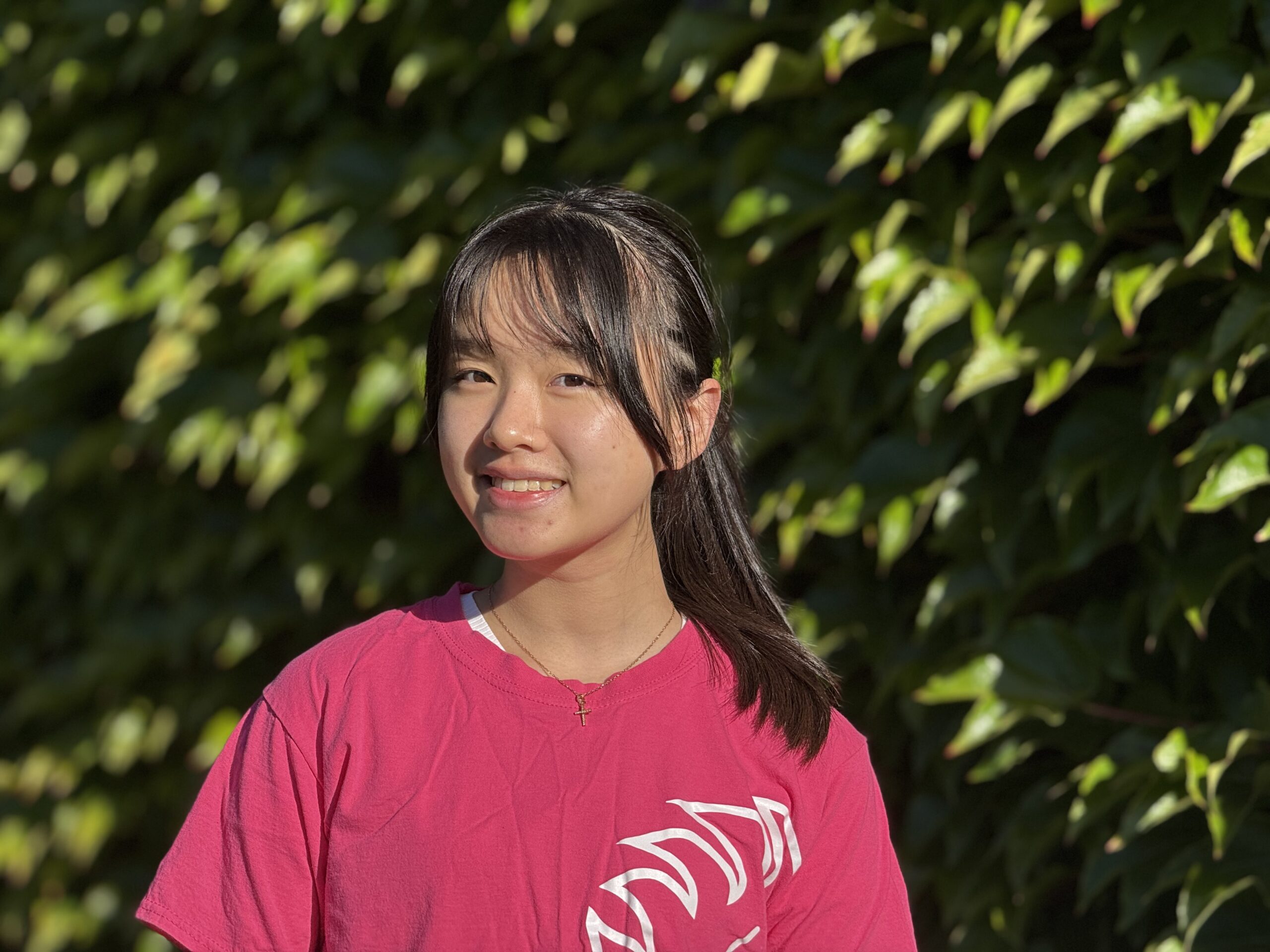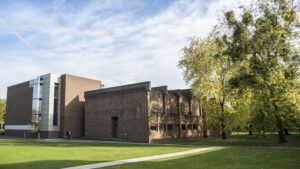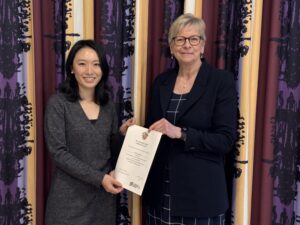When Kelda Lee first heard about the International Genetically Engineered Machine (iGEM) competition during a sixth form outreach visit, she knew she wanted to be part of it. Now, as a biological Natural Sciences student at Churchill College going into her second year, she’s not only secured a coveted place on Cambridge University’s 2025 team but is using the College’s state-of-the-art Bill Brown Creative Workshops (BBCW) to help showcase their groundbreaking research to the world.
The iGEM competition brings together student teams from across the globe to tackle real-world problems using synthetic biology. Kelda is part of the nine-member Cambridge team, comprising seven Natural Science students and one Engineering representative, competitively selected by the Cambridge Synthetic Biology Society from first year students. The team has spent the summer developing an innovative paper-based diagnostic device that could revolutionise how farmers monitor crop health, particularly in developing nations.
As Kelda explains, “The idea came from noticing that there isn’t currently an entirely cheap, easy and quick way to continuously monitor the health of crops and adjust fertiliser use, especially for underprivileged farmers.” Their solution focuses on measuring microRNAs (miRNAs), molecules in plant cells that fluctuate when plants experience stress.
The diagnostic process Kelda and her teammates have developed is simple but scientifically sophisticated. It involves three key steps; extracting miRNA from plant leaves, detecting it through chemical reactions on a paper disc that produce varying levels of fluorescence, and reading the results using a mobile phone app. The beauty of the system lies in its accessibility, as farmers anywhere in the world could potentially monitor their crops’ health using little more than a paper test and a smartphone.
However, developing cutting-edge science is only part of the iGEM challenge. Teams must also engage with communities, gather stakeholder feedback, and create compelling promotional materials to educate the public about their work. This is where Churchill College’s Bill Brown Creative Workshops have proven invaluable.
Kelda has made extensive use of the BBCW’s professional camera equipment to film a stop-motion promotional video and capture high-quality team photographs. She then used the Adobe Premiere Pro video editing software installed on the workshop’s computers to produce polished final materials. The difference has been transformative.
“Executing the production of a stop-motion video would have been difficult on just a mobile phone, and various features we used on the video editing software would not have been accessible. Having access to the professional filming equipment from BBCW significantly enhanced the quality of our photos and videos and we’ve received very positive feedback on them so far, which is encouraging.”
The Bill Brown Creative Workshops, one of the College’s newest facilities, were designed precisely for this kind of cross-disciplinary innovation. By providing students with access to professional-grade creative technology, the workshops enable them to present their academic work with a level of sophistication that can make the difference between good and exceptional outreach.
Kelda and the team will put their materials to the ultimate test in October when they present their project at the Grand Jamboree in Paris, where hundreds of international teams will compete for recognition. The presentation will include their website, promotional video, and a live judging session – all areas where the enhanced production values achieved through the BBCW could prove crucial.
Beyond her involvement with iGEM, Kelda has also greatly enjoyed her experience at Churchill College. “The student community at Churchill is unlike anything we have experienced before,” she says. “I find that my peers are both very diligent and high achieving, while also being very friendly and supportive to one another. It is a community where I feel I can have fun while staying motivated on my studies.”
Looking further ahead, she would like to pursue research in molecular biology or neuroscience but she is keeping her options open depending on how her academic interests develop during her degree.
As Kelda prepares to travel to Paris for the iGEM competition in late October, her story demonstrates the value of the Bill Brown Creative Workshops at Churchill College. Whether the team takes home prizes or not, Kelda’s experience has demonstrated how the right facilities can amplify student potential, enabling a first-year student to present world-class research on an international stage with confidence and professionalism.
For those who are interested, the promotion material mentioned, documentation of the preparation process as well as other educational synthetic biology videos, can be found on their Instagram channel @igemcam.
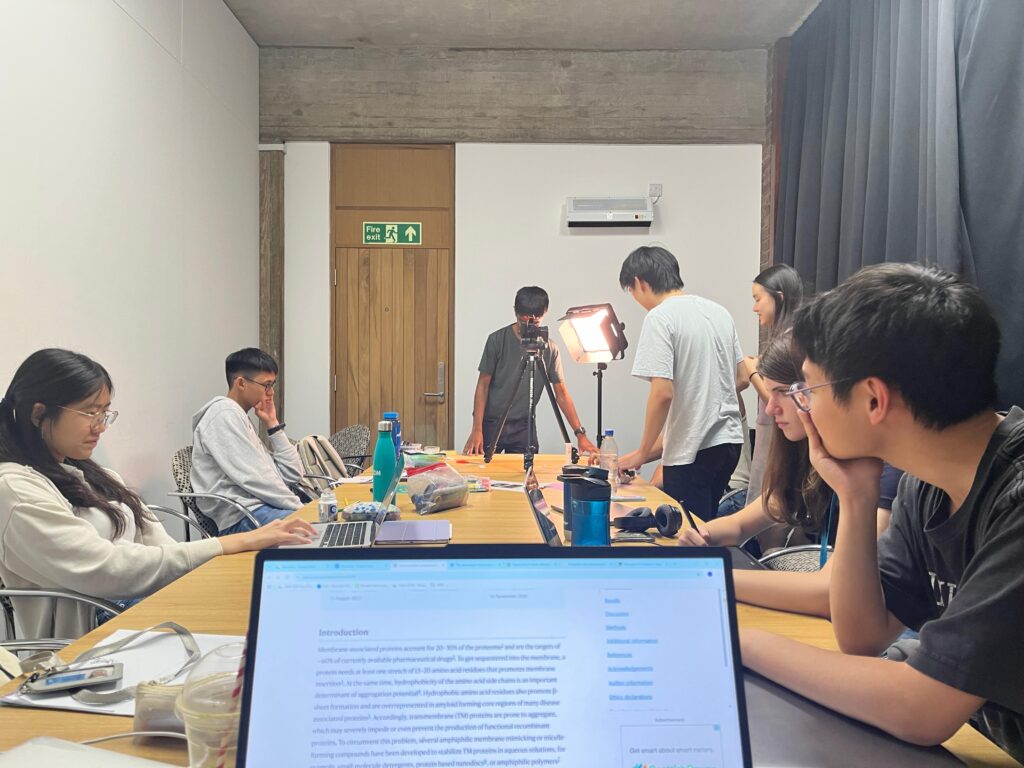
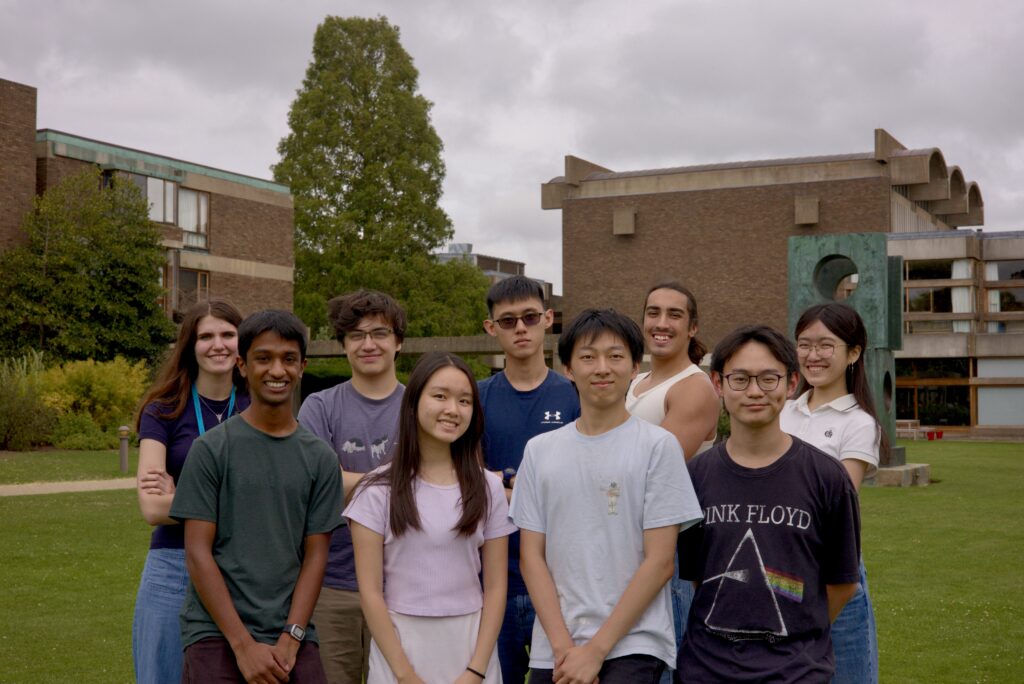

Go behind the scenes with Kelda as she works on creating compelling promotional materials for Cambridge University’s 2025 iGEM team using the College’s state-of-the-art Bill Brown Creative Workshops!
In this short video, you’ll see Kelda using the professional filming equipment and Adobe Premiere Pro available in Churchill’s Bill Brown Creative Workshops to help bring her team’s research to life through stop-motion animation.
Other news

